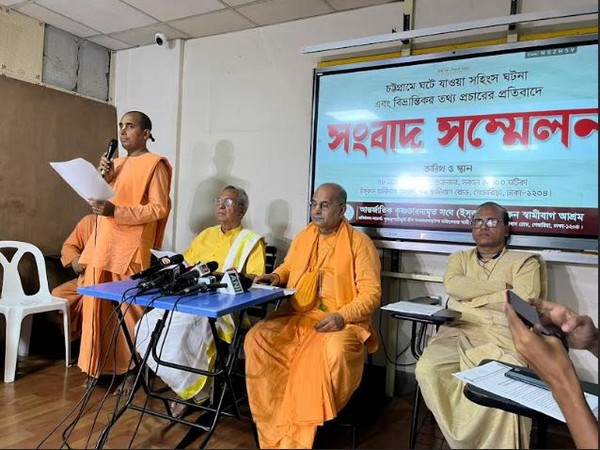
China invited Islamists from Bangladesh, who are behind the regular violent attacks on the minority Hindu community since the Shaikh Hasina government was brought down. Interestingly, Jamaat-e-Islami which has been at the centre of the controversy over the vandalising temples and burning homes and shops was among the four organisations that the ruling China Communist Party hosted earlier in December.
Other organisations invited to China were Hefazat-e-Islam Bangladesh, Khelafat Majlis, Bangladesh Khilafat Andolan, and Nizam-e-Islam Party. This came even after global organisations expressed concerns, especially, the European Union that held Jamaat-e-Islami responsible for “strongly” supporting the uprising against Hindus. United Nations also condemned the racially-based attacks in Bangladesh by religious zealots. Major countries including the US and UK expressed concerns and demanded protection of minorities.
There are about 10 percent of Hindus in the 170 million population of Bangladesh while Christians and Ahmadiyya Muslims have visible presence. All these communities have been subjected to violence from Islamist forces, primarily ,Jamaat-e-Islami. These extremists have been associated with terror attacks in the past. Many countries believe that there could be an increase in militant activities now.
Thus, the UK Foreign, Commonwealth and Development Office (FCDO) has warned of terror attacks after radical Islamist organisations used improvised explosive devices (IED) to target minority religious communities. "Some groups have targeted people who they consider to have views and lifestyles contrary to Islam,” it said. “Terrorist attacks could be indiscriminate, including in places visited by foreign nationals.”
Now the interim government headed by Nobel laureate Muhammad Yunus is struggling to control the menace of extremist groups. "The government has for political expediency compromised with the fundamentalist forces, particularly in the backdrop of constrained democratic polity," said Debapriya Bhattacharya, an eminent economist.
"As a result, fundamentalists have got prominence, recognition and influence.”
Bangladesh’s failure to bring structural changes after Hasina’s departure can be attributed to deep-rooted criminalisation of politics and the involvement of radical Islamist forces, said Dr Shafi Md Mostofa, a research fellow at the Democracy Institute, Central European University in Hungary. Jamaat-e-Islami aspires to set up an Islamic State. Interestingly, it was banned in August after the violence it incited led to the death of over 200 people. It was termed a "militant and terrorist" organisation.
Against such a backdrop, Chinese engagement with terror organisations raises concerns. Chinese Ambassador to Dhaka Yao Wen even called Jamaat-e-Islami a ‘well organised’ party. "No matter what changes have taken place in the domestic situation of Bangladesh, China's commitment to develop China-Bangladesh relations remains unchanged," Wen said.
While Chinese actions sound alarming, Beijing’s focus has always been on engaging with those in power, said Subir Bhaumik, an academic researcher and former BBC scribe. “China backed Pakistan during the 1971 Bangladesh Liberation War and established formal diplomatic relations with the newly created country only in 1975. Since then, Beijing has engaged with whoever is in power in Dhaka,” he said.
China is embracing Jamaat-e-Islami which has become influential now to ensure its investment and presence in Bangladesh remains intact, Salah Uddin Shoaib Choudhury, an award-winning journalist and counter-terrorism specialist. “China immediately switched sides to the Bangladesh Nationalist Party, Jamaat-e-Islami, and other Islamist parties in the country, along with Hefazat-e-Islam, sensing these were the future parties in power,” he said.
China has ignored violence against minorities and welcomed the perpetrator as it is more concerned about the economic and geopolitical benefits, said Khandakar Tahmid Rejwan, a research data analyst at the Bangladesh Peace Observatory and a former research associate at the World Bank. “The PRC’s approach to Bangladesh is based on opportunistic and pragmatic principles. Beijing seeks to improve its relationships with each of the country’s key stakeholders to increase its influence on South Asia’s second-largest economy,” Rejwan said.